
Meaningful work is morally valuable work which we judge to have significance and worth, and which we also experience as emotionally engaging. Meaningfulness is more than an individual preference or luxury good – it is a fundamental human need. When we lack meaningfulness in our work and our lives, our sense of being someone who matters is affected. This can lead to poor health outcomes – for individuals, organisations and societies. Many organisations are alert to the importance of meaningfulness in the work and lives of their employees, but are looking for new language and frameworks which will help them integrate meaningfulness into work design and organisational purpose.

Yeoman, R. (2019). Ethical Organising: Meaningfulness and Mutuality in Organisation/System Design. Routledge Business Ethics Series (forthcoming)

Yeoman, R. & O’Hara, J (2017). Meaningfulness and Mutuality in Organisation Design. HR Magazine, November 29.
Artificial and intelligent systems (A/IS) are changing our human world. We must re-think the importance of work in our lives, and whether new technologies can support the creation of more meaningful work. Meaningful work matters because such work helps us experience identity and personhood. The sense of being a vivid presence in collective action occurs when work is structured by the core goods of freedom, autonomy and dignity. In meaningful work, dignity has a specific meaning – of being seen as particular persons with lives of our own to lead. When we see ourselves this way, we are better able to take care of morally important objects in our lives, such as other persons, animals, the natural world, human creations and organisations. Such work is not only morally desirable, but ought to be the aim of a good society. New technologies of A/IS can help or hinder the achievement of meaningfulness. The progressive potential of the machines lies in how they can aid us in forming the complex human capabilities we will need to create and contribute to socially responsible organisations.
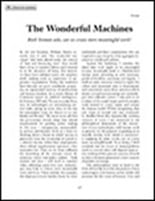


Jobs will disappear, but our daily lives may also become more human – ‘Can artificial intelligence give our lives meaning?’aianews. Issue 66, 26th June 2018.
https://iainews.iai.tv/articles/can-ai-generate-meaning-in-our-lives-auid-1101?_ga=2.193257002.621564169.1530128442-1625209116.1529660051

Yeoman, R. (2019). The future of meaningfulness – work, organisations and systems. In: Breen and Deranty (eds.). Whither Work: the politics and ethics of contemporary work. Rowman & Littlefield Essex Studies in Contemporary Critical Theory Series
Do we have a crisis of meaning? And if we do, does it matter? When faced with global turbulence and grand challenges, such as climate change, claims that meaningfulness in life and work ought to be adopted into organisational design or public policy may be considered mistaken, self-indulgent and even narcissistic. But technological shifts and globalisation do seem to be producing a frustration with the way we live, expressed in a rising sense of alienation – a loss of meaning and purpose in our lives which is strengthening populist tendencies, as well as generating harms such as ‘deaths of despair’ in de-industrialised communities (Case and Deaton, 2017). Given the empirical connection between meaninglessness and ill-being, I show that meaningfulness does matter for reasons of social justice and human flourishing, requiring us to take seriously fears that the new human/machine world is unevenly distributing benefits and burdens, creating new vulnerable groups as well as reinforcing existing fault lines of inequality. Using technology as the ‘keyhole’, the future of meaningfulness in work, organisations and life is examined. I examine how meaningfulness itself –as a moral value and a subjective experience – may be evolving. The discussion seeks to extend debates around distributive proposals such as a citizen’s income by considering the prospects for new kinds of human work and organisations, where new work arising from human/machine interactions is relational, ethical, complex, and power sharing. However, such work is likely to emerge only when we develop inclusive institutions and organisations capable of mobilising democratic power around anxieties that our lives lack value, dignity and meaning. In concluding, I argue that paying attention to the moral and emotional experience of meaningfulness at an organisational and system level provides a basis for re-conceiving citizenship and the nature of our contribution to social cooperation.

Yeoman, Bailey, Madden and Thompson (eds.) The Oxford Handbook of Meaningful Work (January 2019). Includes my chapter on ‘The Meaningful City’
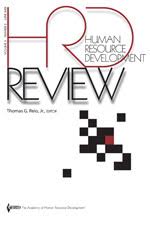
Bailey, C., Yeoman, R., Madden, A., Kerridge, G., Thompson, M. (2018). ‘A Review of the Empirical Literature on Meaningful Work: Progress and Research Agenda’. Human Resource Development Review
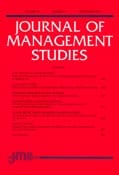
Bailey, C., Lips-Wiersma, M., Madden, A., Yeoman, R., Thompson, M., Chalofsky, N. (May 2019) Editorial ‘The Five Paradoxes of Meaningful Work’. Journal of Management Studies Special Issue ‘Meaningful Work: Prospects for the 21st Century’ (available online now).




“Dr Ruth Yeoman who researches meaningful work in organisations and systems, points out that the human desire to find meaning in work is hard to ignore. She explains that the drive to work is so strong that people seek positive meaning in work that is considered by many people to be dirty, low status or poorly paid. ‘Hospital cleaners, for instance, interpret their work to be meaningful and worthwhile because they enlarge the scope of that work in their own minds,’ she explains.‘It’s not just about cleaning, it’s about contributing to making patients well and the hospital welcoming. This phenomenon allows humans to justify all kinds of work to themselves as useful and relevant, it seems, regardless of what it actually is.”
https://medium.com/oxford-university/the-future-of-work-cf8a33b47285
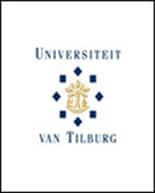
‘Current Issues in Ethics and Economics’. Guest Lecturer and Keynote Speaker. Tilburg University Summer School, August 2018.
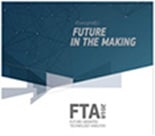
‘The Changing Nature of Work’. Keynote Speaker. European Commission Conference, ‘The Future in the Making’, FTA 2018. (see https://ec.europa.eu/jrc/sites/jrcsh/files/ruth-yeoman_fta2018.pdf)

Creating Sustainable Organisations Using Meaningfulness and Mutuality. 3rd Symposium on Meaningful Work, University of Amsterdam, June 2018.
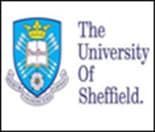


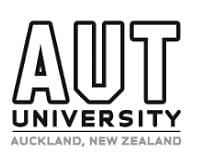


The Future of Meaningfulness – work, organisations and lives’. Keynote lecture for the ‘The Future of Work’, University of Bucharest, April 2018. http://old.unibuc.ro/~conference/futureofwork/#about